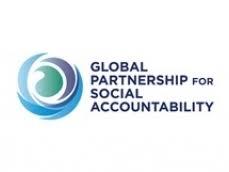
http://www.thegpsa.org/sa/stories/social-accountability-can-help-%C2%A0i...
The world is facing a learning crisis and citizens can play a vital role in response.
Despite great gains in enrollment levels and an ambitious Sustainable Development Goal, education quality worldwide is failing children, affecting their future employability and earnings, health, empowerment as adults, and society’s overall growth potential. This alarming reality is exemplified in the World Development Report 2018 which provides a deep and comprehensive analysis of the drivers, factors and policy solutions to the education crisis. The report presents evidence-based arguments for the importance of investing in children’s literacy, numeracy and life skills towards eliminating poverty and getting countries on a sustainable path towards growth.
Part of the solution to this problem is to have parents and community members more involved in the education of their children. They can help generate data, as without data, the learning crisis remains invisible, goals cannot be set, and policy efforts cannot be guided or monitored for impact.
Today, about a third of countries don’t have data on learning – whether from national or international assessments – in primary education and half don’t have it for secondary education. Citizens and civil society organizations should press countries to measure learning systematically – both through national and international assessments, as each has a distinctive complementary role. The information gathered can help track and understand where the learning problems are, what the potential solutions are and, most importantly, can serve as evidence for better decision-making.
By being active and engaged in teacher associations, community school governance boards and community report cards, individuals can put pressure on governments to act and undertake difficult reforms. Citizens can also help monitor government policy efforts to make sure they stay on track, and hold decision makers accountable for achieving results.
Civil society stakeholders can be agents of innovation by testing and learning from new innovative approaches. They can also help by acting as intermediaries, collaborating with governments to bridge the gap between policies that are well informed by international experience, in order to surface those solutions to the learning problems that are suited to the local context.
Finally, they can play a crucial role in influencing decision-making on education budget allocations, implementation and auditing, and capacity building of governments in undertaking citizen-friendly budgeting and budgeting literacy initiatives.
Through well-designed, strategic and collaborative social accountability mechanisms civil society can also help to coordinate all actors – parents, students, school administrators and governments and align their inputs and feedback into education systems. Lastly, effective advocacy campaigns can help achieve the most critical element – to shift mindsets of all stakeholders uniting them in a commitment to achieving lasting results.
The Global Partnership for Education (GPE) is already providing system-level coordination mechanisms in various countries. Similarly, the World Bank’s Education Global Practice is increasingly incorporating citizen engagement and social accountability approaches in its support to country governments’ efforts to improve education systems.
The Global Partnership for Social Accountability (GPSA), in alignment with the World Bank’s projects in education is also supporting 14 promising projects in 11 countries where civil society, governments and other stakeholders use collaborative social accountability approaches to improve the quality of education.
In Moldova, for example, local school communities (students, administrators, teachers, parents and mayors) are participating in public hearings, budget monitoring, and scorecards on school performance. They are holding authorities accountable and helping devise relevant solutions to their specific challenges. At school level, this is already addressing issues that directly influence learning. At the national level, the GPSA-supported Expert Grup project is increasingly influencing dialogue about system improvement, and helping to mainstream citizen engagement in the education sector.
In Malawi, a country that faces enormous challenges with regard to learning outcomes, the GPSA-supported project by the Malawi Economic Justice Network is addressing a key input for learning – having usable textbooks in each classroom. In the targeted schools, thanks to the diligent work of monitoring committees of parents and teachers, gaps in textbook deliveries are being filled. Once in the classroom, students and teachers are taking better care of books. Public procurement is improving, and even looting and illegal sale of textbooks by private sellers has been reduced by 80%.
In Morocco, a project by CARE Morocco supported by the GPSA has trained parent associations and education authorities in 50 primary schools in vulnerable communities in using social accountability tools such as the Participatory Assessment and Monitoring Tool (PAMT) along with scorecards and social audits. They now collaboratively identify areas for practical school improvements. There is more transparency on available budgets, which is improving decision-making at local, regional and national levels.
“Accountability in Education: The Role of Citizens in Accelerating Learning for All” was the theme of this year’s GPSA annual open roundtable event. Held on March 6 at World Bank Group headquarters, it was jointly organized by the GPSA, the World Bank’s Governance Global Practice, the Global Partnership for Education and the Basic Education Coalition.
Read more takeaways from the roundtable in the event report.










Add new comment